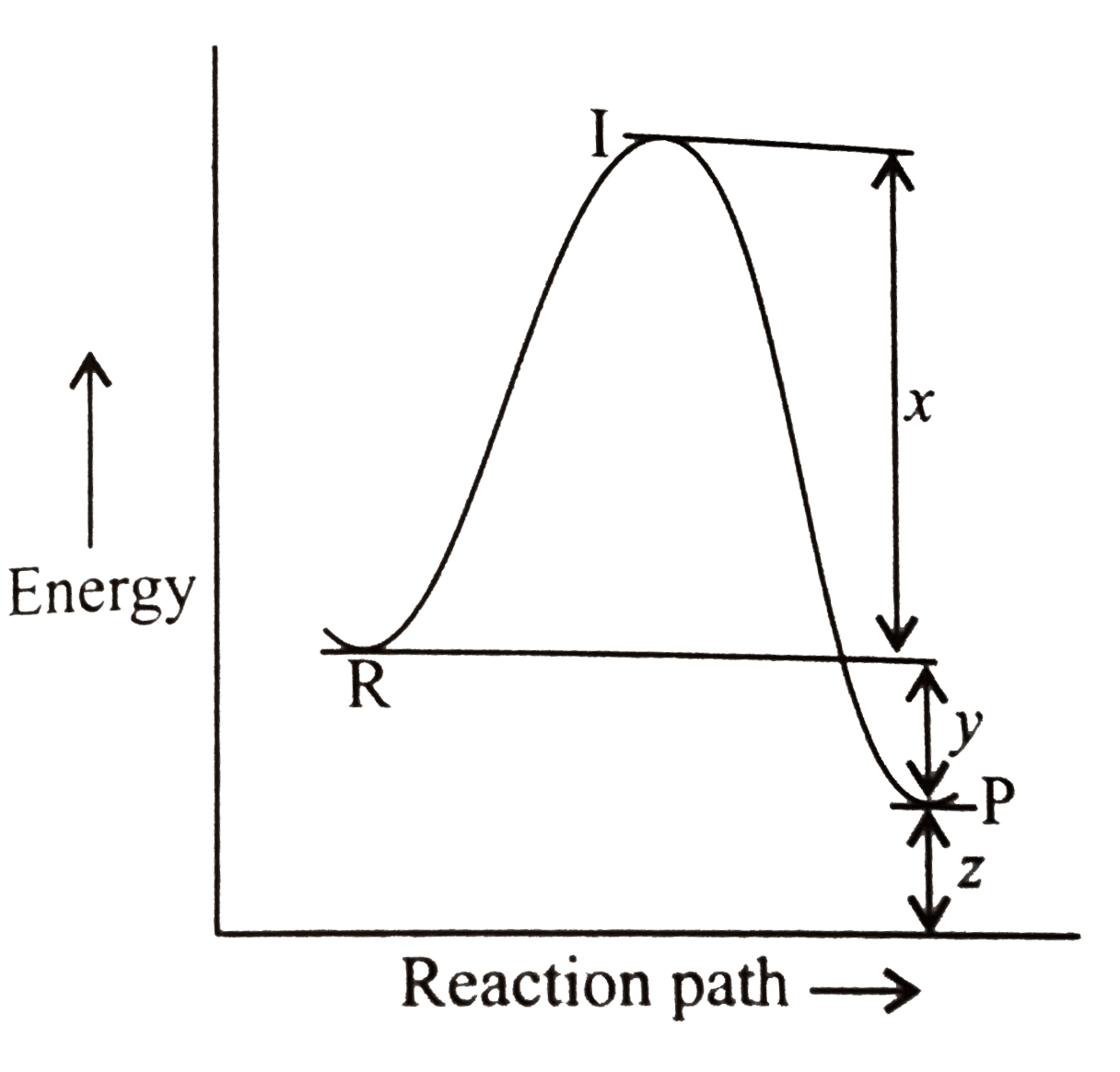The dissociation of phosgene which occurs according to the reaction COCI2(g)⇔CO(g)+CI2(g) is an endothermic process. Which of the following factors will increase the degree of dissociation of COCI2 ?
Adding CI2 to the system
Adding helium to the system at constant pressure
Decreasing the temperature of the system
Reducing the total pressure
The correct Answer is:B, D
To solve the problem regarding the dissociation of phosgene (COCl₂) and the factors that can increase its degree of dissociation, we will analyze the reaction and apply Le Chatelier's principle.
1. Write the Reaction:
The dissociation of phosgene can be represented as:
COCl2(g)⇌CO(g)+Cl2(g)
2. Identify the Nature of the Reaction:
The problem states that this reaction is endothermic. This means that heat is absorbed during the reaction.
3. Understand Le Chatelier's Principle:
Le Chatelier's principle states that if a system at equilibrium is subjected to a change in concentration, temperature, or pressure, the system will adjust itself to counteract that change and restore a new equilibrium.
4. Analyze Each Option:
- Option A: Adding Cl₂ to the system:
Adding more Cl₂ would shift the equilibrium to the left (towards reactants) to reduce the concentration of Cl₂. This would decrease the degree of dissociation.
- Option B: Adding Helium to the system at constant pressure:
Helium is an inert gas and does not participate in the reaction. Adding helium at constant pressure does not change the concentrations of the reactants or products, hence it has no effect on the equilibrium. Thus, it does not increase the degree of dissociation.
- Option C: Decreasing the temperature:
Since the reaction is endothermic, decreasing the temperature would shift the equilibrium to the left (towards reactants) to counteract the decrease in heat. However, if we consider the reverse process (the formation of reactants), it would favor the dissociation of COCl₂. Thus, this option would increase the degree of dissociation.
- Option D: Reducing the total pressure:
Reducing the total pressure would favor the side with more moles of gas. In this case, there are 2 moles of products (CO and Cl₂) for every 1 mole of reactant (COCl₂). However, since the total pressure reduction does not significantly impact the equilibrium in this case, it would not effectively increase the degree of dissociation.
5. Conclusion:
The factor that will increase the degree of dissociation of COCl₂ is:
C: Decreasing the temperature
The dissociation of phosgene can be represented as:
COCl2(g)⇌CO(g)+Cl2(g)
The problem states that this reaction is endothermic. This means that heat is absorbed during the reaction.
Le Chatelier's principle states that if a system at equilibrium is subjected to a change in concentration, temperature, or pressure, the system will adjust itself to counteract that change and restore a new equilibrium.
- Option A: Adding Cl₂ to the system:
Adding more Cl₂ would shift the equilibrium to the left (towards reactants) to reduce the concentration of Cl₂. This would decrease the degree of dissociation.
- Option B: Adding Helium to the system at constant pressure:
Helium is an inert gas and does not participate in the reaction. Adding helium at constant pressure does not change the concentrations of the reactants or products, hence it has no effect on the equilibrium. Thus, it does not increase the degree of dissociation.
- Option C: Decreasing the temperature:
Since the reaction is endothermic, decreasing the temperature would shift the equilibrium to the left (towards reactants) to counteract the decrease in heat. However, if we consider the reverse process (the formation of reactants), it would favor the dissociation of COCl₂. Thus, this option would increase the degree of dissociation.
- Option D: Reducing the total pressure:
Reducing the total pressure would favor the side with more moles of gas. In this case, there are 2 moles of products (CO and Cl₂) for every 1 mole of reactant (COCl₂). However, since the total pressure reduction does not significantly impact the equilibrium in this case, it would not effectively increase the degree of dissociation.
The factor that will increase the degree of dissociation of COCl₂ is:
C: Decreasing the temperature
Similar Questions
The dissociation of phosgene, which occurs according to the
reaction COCl2(g)⇔CO(g)+Cl2(g)
Is an endothermic process. Which of the following will increase the degree of dissociation of COCl2?
View SolutionFor the reaction N2O4(g)⇔2NO2(g), which of the following factors will have no effect on the value of equilibrium constant?
View SolutionKp/Kc for the reaction
CO(g)+12O2(g)⇔CO2(g) is
View SolutionKp/Kc for the reaction
CO(g)+12O2(g)⇔CO2(g) is
View SolutionFor PCI5(g)⇔PCI3(g)+CI2(g), write the expression of Kc .
View SolutionIn the reaction:
2CO(g)+O2(g)⇔2CO(g), entropy decreases.
View SolutionFor the reaction 4NO2(g)+O2(g)⇔2N2O5(g), which of the following facts holds good ?
View SolutionFollowing reaction is occuring in a lime kiln: CaCO3(s)⇔CaO(s)+CO2(g). Which of the following will result in increase in the production of lime?
View SolutionFor the reaction
CO(g)+12O2(g)⇔CO2(g),Kp/Kc is
View SolutionThe energy profile diagram for the reaction:
CO(g)+NO2(g)⇔CO2(g)+NO(g) is given below:

the heat of the reaction is
View Solution
